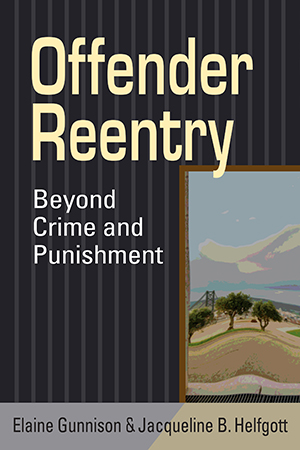
- 2013/241 pages
Offender Reentry:
Beyond Crime and Punishment
Hardcover: $65.00
ISBN: 978-1-58826-912-6
Paperback: $29.95
ISBN: 978-1-62637-771-4
Ebook: $29.95
ISBN: 978-1-62637-777-6
In this comprehensive exploration of the core issues surrounding offender reentry, Elaine Gunnison and Jacqueline Helfgott highlight the constant tension between policies meant to ensure smooth reintegration and the social forces—especially the stigma of a criminal record—that can prevent it from happening.
Gunnison and Helfgott focus on the factors that enhance reentry success as they address challenges related to race, class, and gender. Drawing on accounts from corrections professionals and former inmates to illustrate the real-life consequences of reentry policy, they shed light on one of the key criminal justice issues of our time.
Gunnison and Helfgott focus on the factors that enhance reentry success as they address challenges related to race, class, and gender. Drawing on accounts from corrections professionals and former inmates to illustrate the real-life consequences of reentry policy, they shed light on one of the key criminal justice issues of our time.







